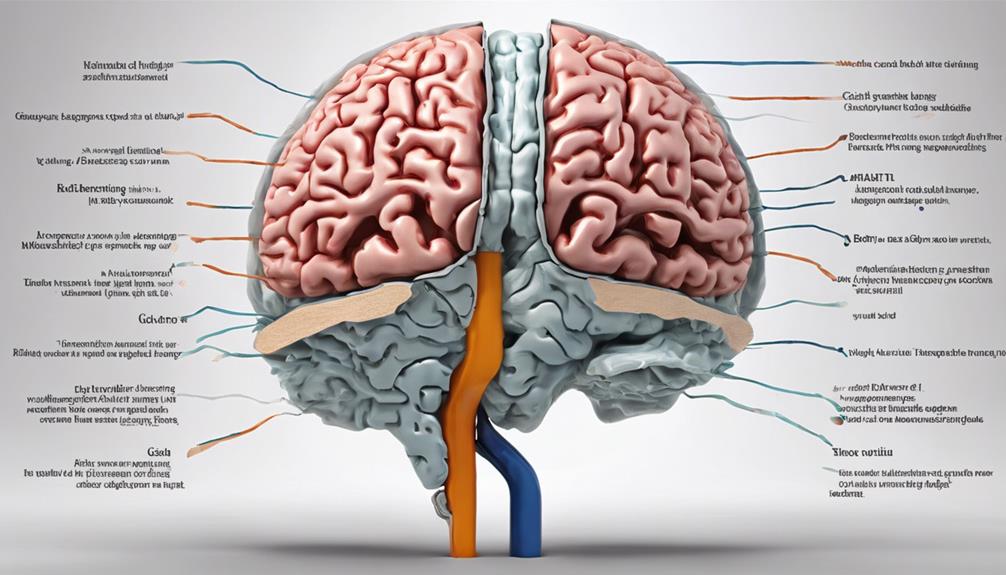As we journey through the complex process of caring for a loved one with dementia, hospice care emerges as a source of solace in times of uncertainty. The comprehensive support and comfort it provides serve as a soothing remedy for both the person with dementia and their family members.
How does hospice care tailor its approach to the unique challenges posed by dementia's progression, and what essential elements does it encompass to provide solace and guidance during this complex journey?
Understanding Hospice Care for Dementia
When facing the complexities of dementia in its advanced stages, understanding hospice care becomes an essential aspect of providing compassionate support. Hospice care for dementia is tailored to manage symptoms, offer comfort, and enhance the quality of life in the final stages of the disease. This specialized care involves a team of healthcare professionals, including doctors, nurses, social workers, and counselors, who are trained to address the unique needs of dementia patients and their families. The eligibility for hospice care in dementia is typically based on a life expectancy of six months or less, taking into account disease progression and symptoms.
The goal of hospice care for dementia is to ensure comprehensive support for both the patient and their family during this challenging time. It focuses on providing holistic care that encompasses physical, emotional, and spiritual aspects to ease the end-of-life journey. Whether at home, in nursing facilities, or hospice centers, the aim is to offer personalized and dignified support to enhance the overall well-being of those facing dementia in its advanced stages.
Benefits of Hospice for Dementia Patients

In hospice care for dementia patients, personalized and compassionate end-of-life support is tailored to meet their specific needs, focusing on enhancing quality of life and providing specialized symptom management. This individualized approach ensures that patients receive the comfort, dignity, and emotional support they deserve during this challenging time.
Symptom management is a crucial aspect of hospice care for dementia, addressing pain, anxiety, and distress commonly experienced in late-stage dementia. By prioritizing holistic care that combines medical attention with emotional and spiritual guidance, hospice services aim to provide comprehensive support to both patients and their families.
Through education and ongoing assistance, families are empowered to navigate the complexities of end-of-life care, finding solace in the knowledge that their loved ones are receiving the best possible care. Hospice for dementia patients offers a comforting presence, ensuring that each individual's journey is filled with compassion, respect, and peace.
Initiating Hospice Services for Dementia
As families navigate the challenges of dementia care, the initiation of hospice services marks a pivotal moment in providing specialized support tailored to the unique needs of patients nearing the end of life. When dementia patients have a life expectancy of six months or less, a physician's referral is needed to start hospice services. Before beginning care, a personalized care plan is crafted collaboratively with the hospice team and family members. This plan ensures that the individual's specific needs and wishes are at the forefront of the care provided. Families of dementia patients are granted 24-hour on-call access to the hospice staff for continuous support and guidance, offering reassurance during difficult times. It's important to acknowledge that hospice care for dementia can be discontinued if the patient's condition changes or improves, emphasizing the flexibility and patient-centered approach of hospice services. This support not only benefits the patient but also provides essential family support during this challenging period.
| Key Points | |
|---|---|
| Life Expectancy | 6 months or less |
| Personalized Care Plan | Collaboratively created |
| 24-hour On-call Access | Continuous support |
| Discontinuation of Care | If condition changes |
Financial Considerations for Hospice Care

Understanding the financial aspects of hospice care for dementia is essential for families to secure access to vital end-of-life support services. Medicare typically pays for hospice care for individuals with dementia, covering services such as medical care, counseling, and necessary medical supplies. Additionally, Medicaid often assists in covering hospice care for dementia patients, providing financial aid for end-of-life services.
Private insurers may also offer coverage for hospice care for dementia, contingent upon specific policy details and requirements. In cases where insurance is lacking, community donations and fundraising efforts can play a crucial role in supporting hospice services for individuals with dementia.
It's important to remember that hospice eligibility usually requires a life expectancy of six months or less. By engaging in financial planning and exploring available resources like Medicare, Medicaid, private insurers, community support, and fundraising efforts, families can ensure that their loved ones receive the necessary care and support during this challenging time.
End-of-Life Support for Dementia Patients
Navigating end-of-life support for individuals with dementia involves a tailored approach to managing pain, anxiety, and symptoms, ultimately aiming to improve their quality of life. When it comes to end-of-life care for dementia patients, several key aspects must be considered:
- Hospice care requirements: Hospice provides specialized care for individuals with a life expectancy of six months or less, offering palliative support tailored to the needs of patients with Alzheimer's disease and related dementias.
- Emotional and spiritual support: Caregivers of dementia patients in hospice require significant emotional and spiritual support to cope with the challenges of caring for a loved one with a terminal illness.
- Medical support services: Hospice services include expert pain and symptom management, free delivery of medications and medical supplies, and interdisciplinary care plans to ensure comfort and dignity for patients in the late stages of dementia.
- Support for caregivers: Hospice teams work closely with primary care physicians to provide support and guidance to caregivers, helping them navigate the complexities of end-of-life care for their loved ones.
Frequently Asked Questions
What Is the Life Expectancy of a Person With Dementia in Hospice?
We understand the concern about life expectancy for those in hospice care. The duration can vary, typically around 6 months or less for individuals with dementia.
Hospice care aims to provide comfort and symptom management in the final stages of the disease. It's a time where quality of life and specialized support are prioritized.
Decisions for hospice are based on health, disease progression, and individual needs.
When Should a Dementia Patient Go on Hospice?
When should a person consider hospice care?
It's crucial to think about hospice when someone's quality of life is declining, and their medical needs become more complex.
Hospice offers support that can improve comfort and overall well-being during this challenging time.
We should always prioritize the patient's needs and dignity, ensuring they receive the care and compassion they deserve.
It's about enhancing their quality of life in a compassionate and understanding manner.
How Long Does the Final Stage of Dementia Last?
In the final stage of dementia, the duration can vary, lasting from weeks to years. This period is characterized by a significant decline in cognitive and physical function, leading to heightened reliance on caregivers.
Common signs include difficulty swallowing, susceptibility to infections, immobility, and reduced responsiveness. The final stage necessitates round-the-clock care to address the individual's needs effectively.
What Are 3 Things to Never Do With Your Loved One With Dementia?
Here are three things to never do with your loved one with dementia:
- Avoid arguing or correcting.
- Refrain from asking too many memory-based questions.
- Don't rush or hurry them.
These actions can lead to frustration, distress, and anxiety. Instead, focus on providing support, empathy, and understanding.
It's crucial to create a calm and safe environment for individuals with dementia to feel comfortable and cared for.
Conclusion
As we navigate the intricate journey of dementia, hospice care acts as a gentle beacon of light, guiding us through the shadows of uncertainty.
Like a soothing melody in a chaotic world, it offers comfort, compassion, and understanding to both patients and their families.
In the symphony of life's challenges, hospice care for dementia serves as a harmonious support system, enveloping all involved in a blanket of care and kindness.









